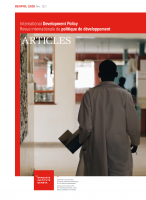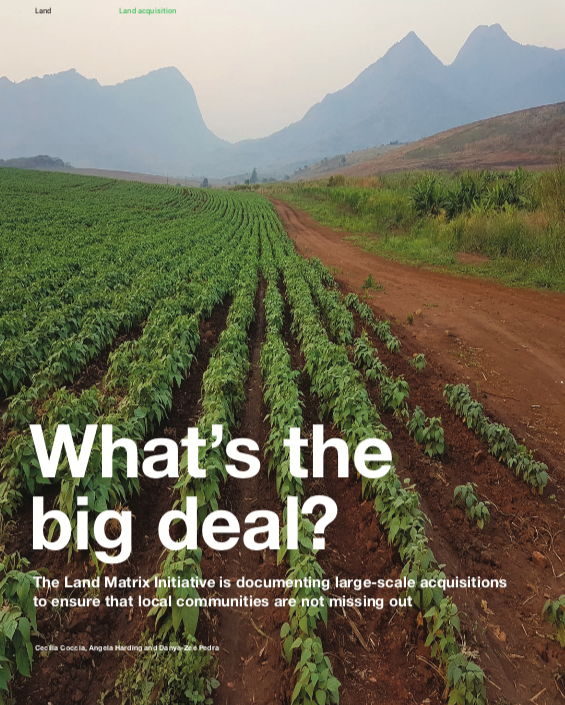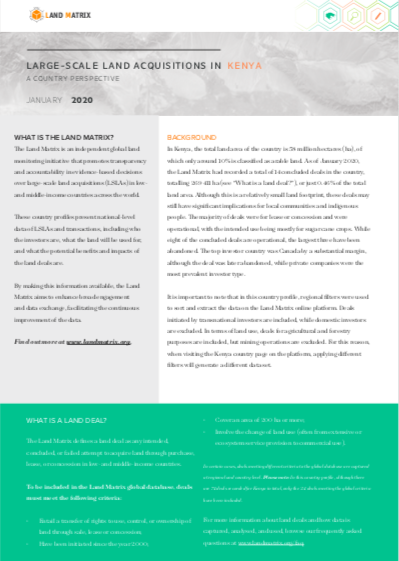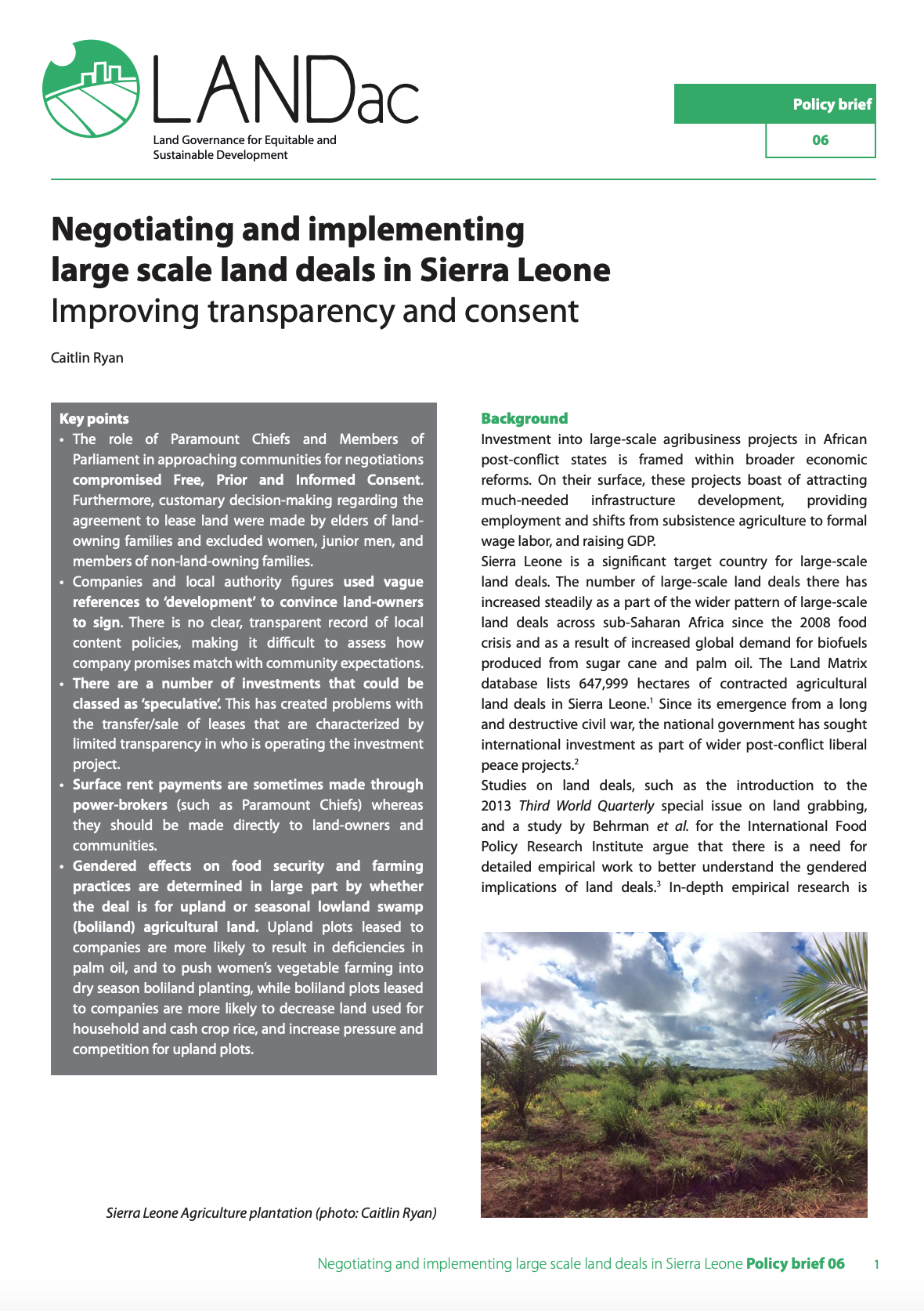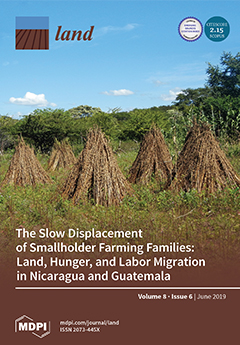Understanding Land Deals in Limbo in Africa: A Focus on Actors, Processes, and Relationships
This publication serves as an introduction to a collection of articles published in the African Studies Review. It discusses the implications of as well as the question through what actors, processes, and relationships land deals become stalled or partially implemented. The reviewed articles draw on long-term, in-depth ethnographic research of land deals in Senegal, Tanzania, and Zambia.



